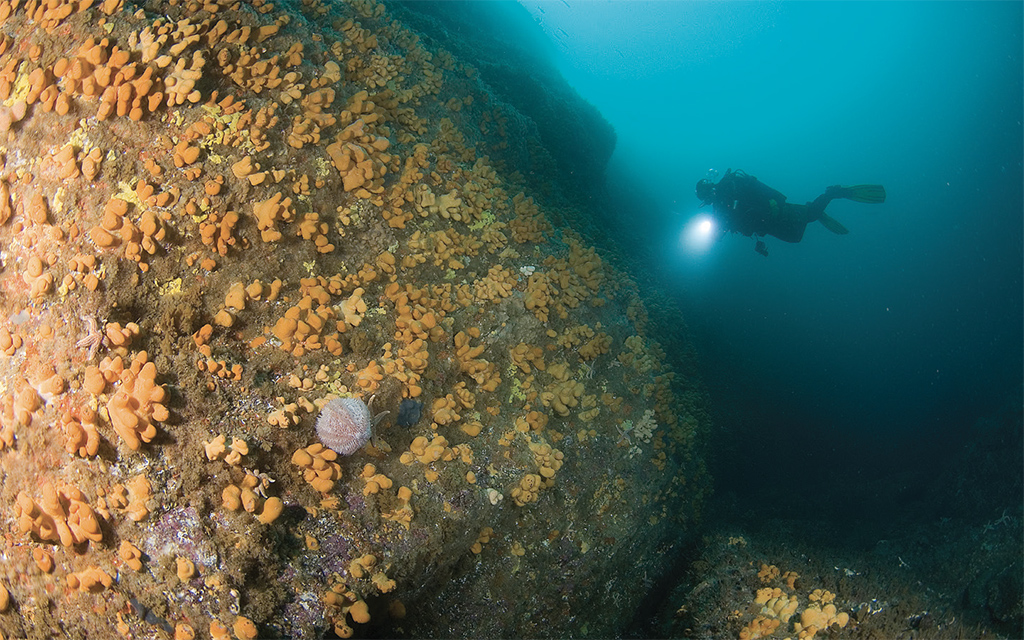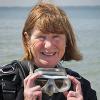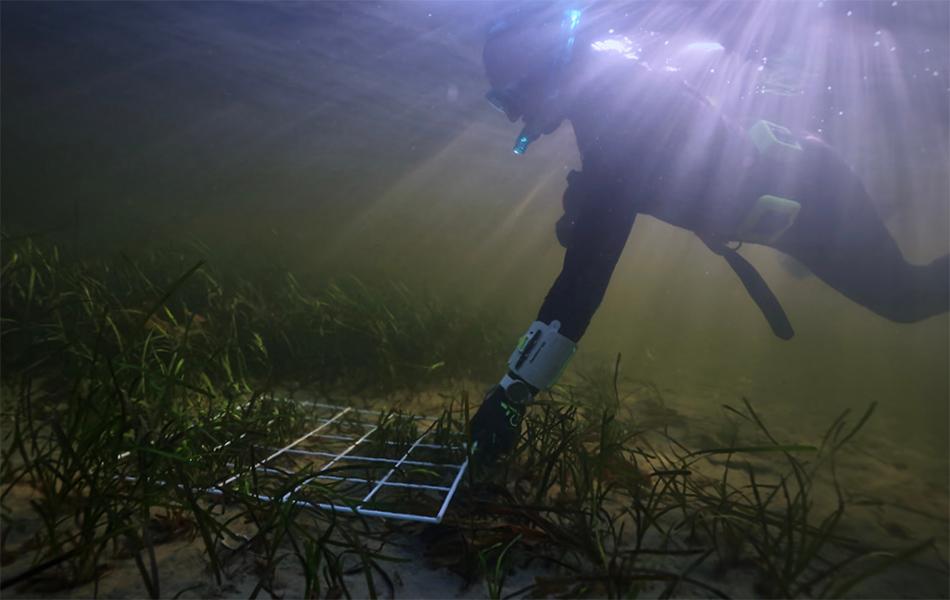
Photo credit: Simon Rogerson
Jane Maddocks highlights the work of two marine organisations that involve normal club divers and achieve important results.
Last month I talked about a suite of BSAC courses that could enhance your diving, and get your branch involved in projects. It might even give you the chance to get any local BSAC Direct members coming along to get involved with a fun way of doing things. So, if you have done the Marine Life Appreciation, Wreck Appreciation (and the Wreck Diving Course) as well as the new Underwater Surveyor, you are pretty well set up for some great ‘diving with a purpose’ moments.
Our BSAC courses rock…but I am going to suggest that, by getting involved with some specialist organisations, your own diving is going to find further horizons. And when you bring your new understanding and skills back to the branch, your fellow members will also find their skills expanding. It’s win-win.
I want to look at two organisations, just as examples.
Citizen archaeology
The Nautical Archaeology Society (NAS) has some excellent training courses, taught by approved tutors. NAS have International Training Partners as well, so for all overseas members that could be a real advantage.
It all starts with the basic theory of maritime archaeology by eLearning. Once the eLearning is competed, then Skills Days beckon. This is where the fun really begins.
Archaeological Recorder Days take place on land or underwater. You learn to record a site through sketching, photography, and video. Then on Archaeological Surveyor Day you learn how to complete a detailed 2D survey and use a planning frame to produce a scale drawing.
Progressing to Discover Underwater Archaeology leads you through the process of running an archaeological project, from planning to publishing. What is learnt here can be applied to all your branch or group projects, and will benefit you and the others you dive with. From there, the sky is the limit.
Find out more at nauticalarchaeologysociety.org/elearning
by getting involved with some specialist organisations, your own diving is going to find further horizons
Tracking marine life
If you want to take your understanding of marine life further, why not sign up for Seasearch courses that really enhance what you see and can enjoy underwater?
Seasearch is a training programme to teach you how to record specific information about what the seabed was like, and what marine life you saw on that seabed, using a standardized well-documented protocol. Seasearch is not marine life identification on its own.
Once you have completed the Seasearch Observer classroom learning you then do two dives and your completed recording forms are quality controlled by your tutor. You record the information from your survey (dive, snorkel, intertidal walk) on the Seasearch Observation form. There are then five more qualifying forms to submit, during which time you will receive feedback and close mentoring from the highly experienced coordinator and tutor network to ensure the accuracy of your sightings.
All the forms are subjected to a published QC process, but during your qualification period the Seasearch tutors make sure that you feel supported and confident in your recording.
Once you’ve received your Seasearch approval, you can submit forms from any dive you do as a Seasearch Observer. These forms will generate still feedback from the senior Seasearch team. There is absolutely no requirement to be a marine biologist, just someone with an interest in the marine environment.
There is a continuing, rigorous, quality control process before your records go on to Seasearch’s highly regarded database. All the data goes onto the industry-standard Marine Recorder database and is published onto the National Biodiversity Network Atlas (and then on to other, international databases) under an open licence – you need to acknowledge that it is Seasearch data.
Seasearch has been collecting validated data for more than 35 years. This is highly competent science – in my opinion the Gold Standard for Citizen Science – because it is competent science capable of being done by non-scientists and quality assured by professionals.
By the way – did I mention how much fun it is? Ultimately, it adds to the quality of your diving. seasearch.org.uk
Article ‘A gold standard in citizen science’ by Jane Maddocks first published in SCUBA magazine, Issue 148 September 2024.

 Author: Jane Maddocks | Posted 01 Sep 2024
Author: Jane Maddocks | Posted 01 Sep 2024



